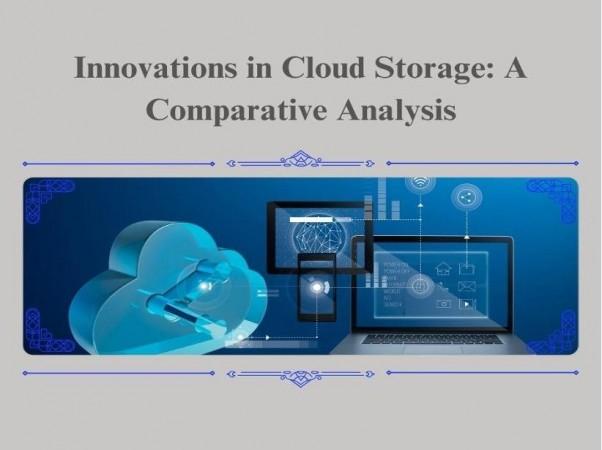
Authored by cloud storage architecture expert Kasthuri Theja Peduru, this article provides a forward-looking analysis of Object-Based Storage (OBS) and Block Storage, showcasing the key innovations that enable these solutions to meet the evolving demands of modern cloud applications.
Redefining Scalability in Storage
OBS introduces a transformative approach to scalability with its flat address space and unique object identifiers. This design enables high-throughput data retrieval, ideal for distributed applications managing vast datasets. Benchmark metrics highlight OBS achieving a throughput of 420 MB/s for large object retrieval, showcasing its utility in AI and analytics workloads. Meanwhile, Block Storage's strength lies in its capacity for high Input/Output Operations Per Second (IOPS), making it indispensable for transaction-intensive applications. The granularity of Block Storage ensures reliable performance even under significant workloads, with latency consistently under 5 milliseconds for critical operations.
Efficiency-Driven Resource Utilization
Resource utilization is a critical aspect of modern storage optimization, driving advancements in both Object-Based Storage (OBS) and Block Storage. OBS is particularly effective in reducing management overhead, achieving up to a 43% reduction compared to traditional storage models. This is enabled by its built-in deduplication capabilities, which enhance data efficiency by eliminating redundant storage requirements. On the other hand, Block Storage focuses on precision resource allocation, making it ideal for performance-critical applications. With an impressive 91.7% efficiency in enterprise deployments, it optimizes I/O operations to deliver high performance while maintaining cost-effectiveness, striking a balance between scalability and operational efficiency.
Advancing Data Consistency and Durability
Both Object-Based Storage (OBS) and Block Storage employ advanced mechanisms to ensure data consistency and durability, tailored to specific use cases. OBS excels in distributed systems with near-perfect replication consistency, ensuring synchronized and accessible data across nodes. Its advanced caching further enhances performance, making it ideal for frequently accessed datasets in cloud-native applications. Block Storage, on the other hand, prioritizes data integrity through synchronous mirroring, delivering real-time consistency across volumes. With a 98.7% success rate in high-concurrency transactional operations, it ensures reliability for mission-critical tasks. Together, these storage solutions provide enterprises with robust performance and reliability, essential for managing sensitive and high-value data in diverse operational scenarios.
Tailoring to Workload-Specific Needs
The flexibility of modern cloud environments necessitates storage solutions that adapt to diverse workloads. OBS is particularly suited for parallel processing tasks, achieving an 82.3% improvement in throughput for distributed workflows. In contrast, Block Storage thrives in database-driven applications, with optimized configurations reducing response times by nearly 90%. By aligning storage types with workload characteristics, enterprises can maximize efficiency and minimize operational challenges.
The Hybrid Advantage
As hybrid storage architectures gain traction, organizations can capitalize on the strengths of both OBS and Block Storage. By integrating these technologies, enterprises achieve improved disaster recovery capabilities, enhanced resource utilization, and significant cost optimizations. Studies show hybrid systems reducing storage costs by 38% while maintaining 99.99% data durability. Such configurations allow businesses to meet performance and scalability demands without sacrificing budgetary constraints.
Best Practices for Implementation
Effective implementation of cloud storage solutions involves a strategic focus on cost, performance, and security. Intelligent tiering and automated lifecycle management emerge as critical strategies, delivering a 42% reduction in storage expenses. Security measures, including zero-trust architectures and advanced encryption, ensure compliance and mitigate risks. Finally, leveraging predictive scaling and AI-driven management solutions enhances operational resilience, preventing outages and optimizing resource deployment.
Kasthuri Theja Peduru's analysis underscores the critical role of OBS and Block Storage in modern cloud ecosystems. By understanding their unique capabilities, enterprises can adopt hybrid architectures that leverage their strengths for diverse workloads. This strategic alignment empowers organizations to achieve optimal performance, scalability, and cost-efficiency, solidifying their competitive edge in a data-driven world.















